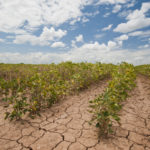 A new international study led by the University of Nottingham shows that most people, even in areas hardest hit by climate change, don’t know the term “climate justice.” However, many do understand that social, historical, and economic inequalities play a role in the climate crisis. This insight could help improve how advocates communicate about the issue.
A new international study led by the University of Nottingham shows that most people, even in areas hardest hit by climate change, don’t know the term “climate justice.” However, many do understand that social, historical, and economic inequalities play a role in the climate crisis. This insight could help improve how advocates communicate about the issue.
The survey reached 5,627 adults across 11 countries, including Australia, Brazil, Germany, India, Japan, Nigeria, and the U.S., and is one of the first to look at public understanding of climate justice outside Europe and North America. Researchers found that two-thirds of respondents had never heard of the term, though most supported its key ideas. For example, 78% agreed that poorer communities face worse impacts from climate change, and 70% saw capitalism and colonialism as part of the problem.
Unequal consequences
Climate justice recognizes that the effects of climate change are not equally felt. It argues that people who suffer the most from climate change often have the least say in addressing it, and that this imbalance adds to broader social injustices. The survey showed that understanding these principles was linked to greater involvement in climate action and support for fair policies.
The researchers hope their findings will help climate advocates put more pressure on policymakers. “Our study shows that people around the world support the ideas behind climate justice, even if they don’t know the term,” the authors note. “This offers a chance to push for solutions that are not just effective but fair.”